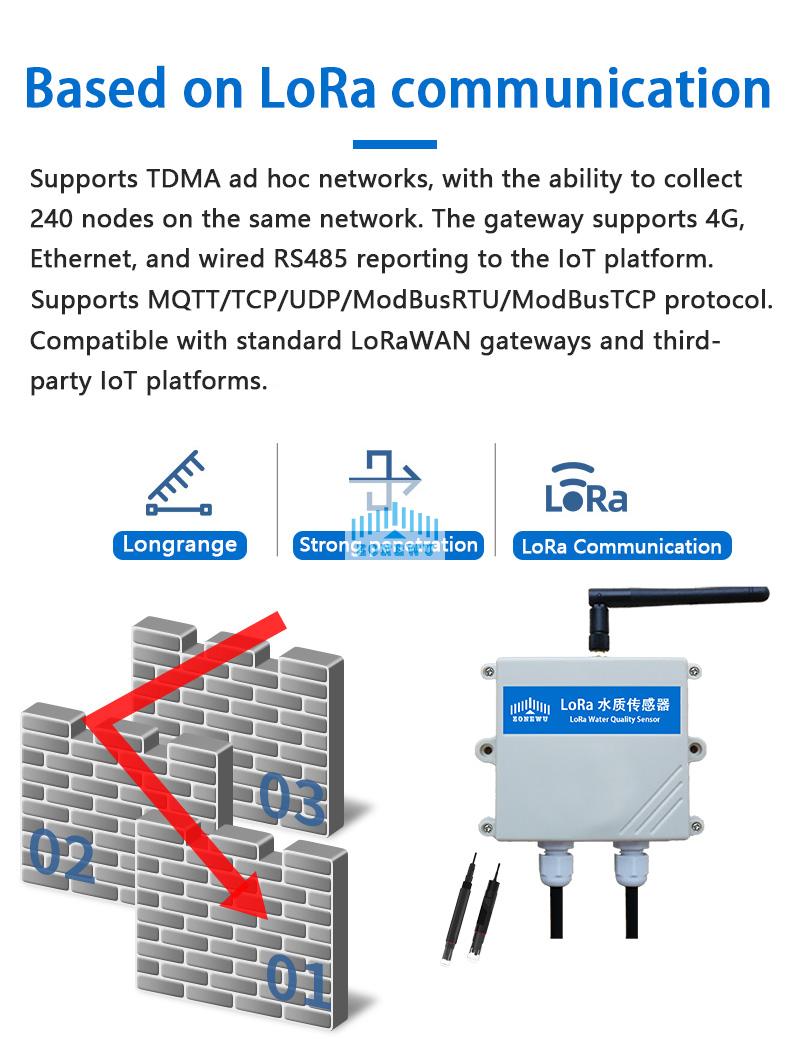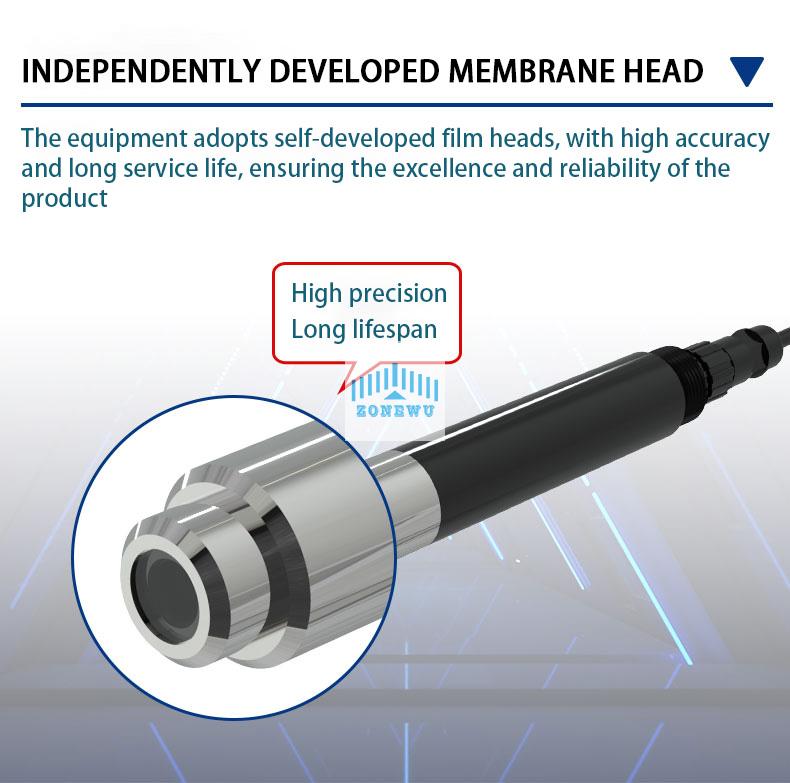· Polar method: sensor head with gold material cathode and silver anode, applied voltage between the two poles, the electrode cavity, filled with electrolyte, permeability membrane will separate the electrolyte and water samples, oxygen molecules through the membrane into the sensor, in the cathode is reduced, the current is proportional to the oxygen pressure, current value processed by the transmitter and display as oxygen concentration or percentage saturation.
· Fluorescence: optical oxygen sensor is equipped with LED light source, detector and membrane cap with fluorescent coating. The fluorescent coating oxygen molecules and oxygen pressure in the measured medium, coating marker molecules by LED light source excitation red fluorescence, oxygen molecules will weaken the fluorescence intensity and shorten the luminous time, the detector receives fluorescence extinguish light signal, the higher the oxygen content in the medium, the shorter the fluorescence time, the lower the oxygen content, the longer the luminous time.
· Low power consumption: using LoRaWAN communication technology, with the characteristics of low power consumption, can use battery power supply, suitable for the field, remote areas or places without mains power supply for long-term monitoring.
· Long-distance transmission: LoRaWAN technology has a long transmission distance, and the communication distance can reach several kilometers or even farther in open areas, which can realize the distributed monitoring of a large area of water.
· Strong anti-interference ability: it has a good resistance to electromagnetic interference in the water environment to ensure the stability and accuracy of data transmission.
· Easy to deploy: no need to lay complex communication lines, easy to install, can quickly build water quality monitoring network.
· Aquaculture: real-time monitoring of dissolved oxygen content in aquaculture water, timely detection of hypoxia, to avoid fish death due to hypoxia, improve aquaculture efficiency.
· Environmental monitoring: used for water quality monitoring of rivers, lakes and oceans, understand the ecological status of water bodies, and rovide data support for environmental protection and water resources management.
· Industrial wastewater treatment: monitoring the dissolved oxygen content in industrial wastewater can help to optimize the wastewater treatment process, improve the treatment efficiency, and ensure the standard discharge.


Contact: Qui
Phone: 18146178586
Tel: 18146178586
Email: qui@zonewu.com
Add: 1501-3, Building F03, Phase III, Software Park, Jimei District, Xiamen City, Fujian Province, China
